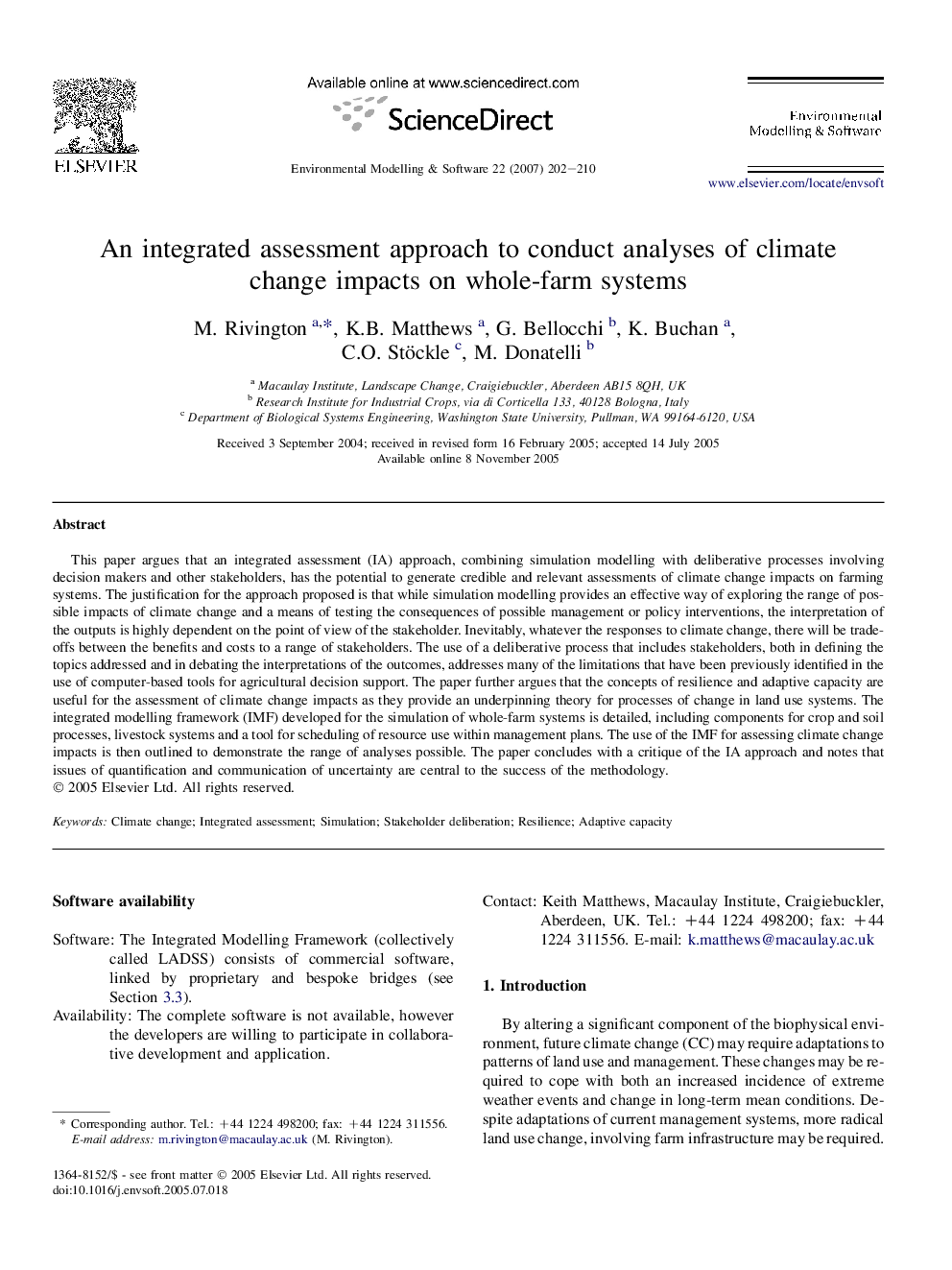| Article ID | Journal | Published Year | Pages | File Type |
|---|---|---|---|---|
| 569155 | Environmental Modelling & Software | 2007 | 9 Pages |
This paper argues that an integrated assessment (IA) approach, combining simulation modelling with deliberative processes involving decision makers and other stakeholders, has the potential to generate credible and relevant assessments of climate change impacts on farming systems. The justification for the approach proposed is that while simulation modelling provides an effective way of exploring the range of possible impacts of climate change and a means of testing the consequences of possible management or policy interventions, the interpretation of the outputs is highly dependent on the point of view of the stakeholder. Inevitably, whatever the responses to climate change, there will be trade-offs between the benefits and costs to a range of stakeholders. The use of a deliberative process that includes stakeholders, both in defining the topics addressed and in debating the interpretations of the outcomes, addresses many of the limitations that have been previously identified in the use of computer-based tools for agricultural decision support. The paper further argues that the concepts of resilience and adaptive capacity are useful for the assessment of climate change impacts as they provide an underpinning theory for processes of change in land use systems. The integrated modelling framework (IMF) developed for the simulation of whole-farm systems is detailed, including components for crop and soil processes, livestock systems and a tool for scheduling of resource use within management plans. The use of the IMF for assessing climate change impacts is then outlined to demonstrate the range of analyses possible. The paper concludes with a critique of the IA approach and notes that issues of quantification and communication of uncertainty are central to the success of the methodology.
